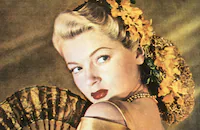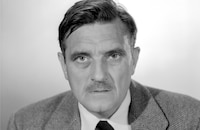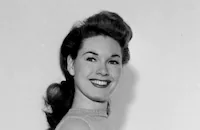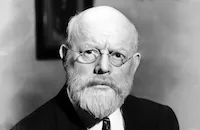Marriage Is a Private Affair

Brief Synopsis
Cast & Crew
Robert Z. Leonard
Lana Turner
James Craig
John Hodiak
Frances Gifford
Hugh Marlowe
Film Details
Technical Specs

Synopsis
As she is about to utter her wedding vows, young, wealthy Theo Scofield recalls how she came to be standing at the altar: At a New York officers' club, Theo is proposed to by pilot Lt. Tom Cochrane West, whom she has known for only three days. Theo, whose capricious mother Irene is working on her fourth marriage, agrees to marry Tom if he can prove that he was born under a Vermont maple tree, as he has claimed. Soon after, Theo receives a maple leaf in the mail from Tom, and over the objections of her mother, who thinks that the Boston-bred Tom is "stuffy," Theo declares herself engaged. Believing that Theo is not ready for marriage, Capt. Miles Lancing, her longtime admirer, advises her not to go through with the wedding, but she dismisses his concerns. Back at the wedding, Theo and Tom are pronounced man and wife, and Theo is reintroduced to her father, whom she has not seen in fifteen years. Like Miles, Mr. Scofield senses that Theo is marrying for the wrong reasons, but wishes her well. Later, during their idyllic Vermont honeymoon, Theo and Tom, who is to report for active duty soon, learn what they can about each other. While assuring Tom that she wants to grow old with him, Theo expresses doubts about her "staying power." Tom, however, insists that their marriage will last as long as they trust each other. After the honeymoon is cut short by the death of Tom's father, Tom learns that his commission has been made inactive. The Army asks Tom, a lens designer, to return to his father's optical company, because its new head, Joseph I. Murdock, Tom's alcoholic, childhood friend, has been deemed unreliable. Tom is greatly disappointed by the news, and Joe vows to improve his performance for Tom's sake. Theo, too, is taken aback by the change in plans, as she realizes that she must fulfill Tom's dreams of a cozy Boston home sooner than expected. Tom's other childhood friends, Sissy and Ted Mortimer, assure Theo that she will succeed, and a few months later, Theo announces that she is pregnant. Theo struggles to be a good mother to Tommy, Jr., but is consumed with worries and doubts. On the day of Tommy's first birthday, Theo runs into Miles and learns that he has been stationed in Boston. Theo invites him over, but he politely declines, and Theo, feeling rejected, rushes to see Tom at work. Theo bursts into Tom's lens laboratory and ruins the delicate experiment on which he has been working. Exhausted, Tom yells at her, then reveals that Joe has disappeared on an apparent "bender." After Tom tells her that he will be late for Tommy, Jr.'s birthday party, Theo goes to the local officers' club in a sexy gown and flirts with a receptive Miles. When Miles asks her why she came, Theo confesses that she wanted to make him "crawl," but is now feeling remorseful. Just then, Tom arrives at the club, furious that, after he had managed to get home early, he found Theo gone. Back at home, the couple continues to argue and misses celebrating Tommy's birthday. The next day, Theo goes to see Sissy for advice and runs into Joe, who is also searching for Sissy. Theo insists that the scruffy Joe return to work, but when they stop at Joe's apartment for a change of clothes, they find Sissy there. Unaware of Theo's presence, Sissy throws herself into Joe's arms, confirming Theo's suspicion that she is having an affair with him. Sissy's adultery depresses Theo, who feels that if the upright Sissy cannot be faithful, no one can. Later, Tom apologizes to Theo for mistrusting her, and Theo admits that she went to the club to feel "attractive" again. When Tom makes reference to Ted and Sissy's "ideal" marriage, Theo cries, but refuses to tell Tom why. The next day, Tom finds Joe at the office and learns that he had gone to Vermont to marry his secret sweetheart but left her at the altar because of a "barrier" from his past. Tom insists on taking Joe back to Vermont and drops by his apartment to tell Theo he is going. After the housekeeper informs him that Theo has gone to the movies, Tom leaves a loving note for her on top of her pajamas. Theo has actually gone to Miles's apartment, and when Miles finally returns home late that night, he finds her asleep on his couch. Miles demands to know her intentions, but she claims she is hopelessly confused, infuriating him. Theo returns home at daybreak and does not see Tom's note. When Tom shows up later, he tells her that Joe has married and he and his bride will be coming for dinner that night. Sissy and Ted are also scheduled to come, and Theo is unable to warn Sissy about Joe's new wife. Sissy is devastated by the news and angrily reveals the affair to all during dinner. Later, Tom deduces that Theo never saw his note and accuses her of lying. Theo confesses she went to Miles's and, while insisting that nothing happened, also admits she doesn't know her own heart. Jealous and heartbroken, Tom leaves, and six months later, the now-separated Theo goes to San Francisco to spend time with her father before finalizing her divorce in Reno. There, she recalls her past loves and her romantic days with Tom. When Miles suddenly appears and proposes, Theo says she can never marry again, having learned that marriage is not an institution, but a "private affair." Realizing that she still loves Tom, whose commission was reinstated, Theo asks Miles to track him down. Through a series of monitored messengers, Theo finally reaches Tom in New Caledonia and, to his great joy, tells him she wants to stay married.

Director

Robert Z. Leonard
Cast

Lana Turner

James Craig

John Hodiak

Frances Gifford

Hugh Marlowe
Natalie Schafer

Keenan Wynn
Herbert Rudley

Paul Cavanagh

Morris Ankrum
Jane Green

Tom Drake

Shirley Patterson
Rev. Neal Dodd

Nana Bryant
Cecilia Callejo
Virginia Brissac

Byron Foulger

Addison Richards
Jimmy Hawkins
John Warburton

Alexander D'arcy
Eve Whitney
Hazel Brooks
Ann Lundeen
Linda Deane
Lynne Arlen
Beryl Mccutcheon
Elizabeth Dailey
Katharine Booth
Cecil Weston
Rhea Mitchell
Sondra Rodgers
Sam Mcdaniel
James Warren
Douglas Cowan
Kay Williams
Natalie Draper
Tommye Adams

Howard Mitchell
Jody Gilbert
Bruce Kellogg
Harold Landon
Fred Beckner
Douglas Morrow
Ann Codee
Eula Guy
Charles Coleman
Wyndham Standing
Gloria Grafton
Arthur Space
Franco Corsaro
Sayre Deering
Charles Sherlock
Al Rhein
Charles Regan
Paul Bradley
Al Murphy
Jack Carrington
Joe Gilbert

Freddie Steele
Celia Travers
Grace Lord
Dick Rich
Sam Flint
Beatrice Maude
Mitchell Kowal
Forbes Murray
Crew
Edward Baravalle
Pandro S. Berman
William Brockway
Earl Cates
Lenore Coffee
Mark Davis
Jack Dawn
Peter P. Decker
Dale Deverman
Cedric Gibbons
A. Arnold Gillespie
David Hertz
Marion Herwood
Hubert B. Hobson
Irene
Ray June
Bronislau Kaper
Standish J. Lambert
Leone Ledoux
Robert Z. Leonard
Bill Lewis
M. J. Mclaughlin
Warren Newcombe
Richard Pefferle
Hal Rosson
Douglas Shearer
Robert W. Shirley
William Steinkamp
Michael Steinore
George White
John A. Williams
Edwin B. Willis

Videos
Trailer
Hosted Intro
Film Details
Technical Specs

Articles
Marriage is a Private Affair
Playing Turner's much-married mother was Natalie Schafer, a New York theater actress, who had only recently begun acting in films. Later, Schafer would play Turner's mother in the 1970 TV series, The Survivors. And Turner had not one, but two handsome leading men in Marriage Is a Private Affair, John Hodiak (replacing Gene Kelly), and James Craig. Among the uncredited scriptwriters on the film were Ring Lardner, Jr., and Tennessee Williams, who wrote to his friend Gore Vidal, "I am currently embroidering a cinematic brassiere for Miss Lana Turner."
In spite of her glamorous appearance, however, Turner's health was fragile. The pregnancy and birth had been difficult, complicated by an Rh factor that necessitated blood transfusions for the baby, and left Turner anemic and underweight. She was still gaunt and exhausted when production began in January of 1944. MGM studio head Louis B. Mayer reportedly saw some early footage, and was shocked at her appearance, saying, "If we can't photograph Lana Turner, we might as well close the studio."
Emotionally, too, Turner was in bad shape. The onscreen marital conflict mirrored the troubled state of her real-life marriage to restaurateur Stephen Crane. The couple had impulsively eloped in July of 1942, after knowing each other just a few weeks. But they later found out that Crane's divorce from his previous wife hadn't been final when they wed, so the marriage was annulled. Soon after, Turner discovered she was pregnant. She hastily re-married Crane, and gave birth to baby Cheryl in July of 1943. By that time, the relationship was already on the rocks and after the production ended on Marriage Is a Private Affair in April, Turner's marriage was over too. There were rumors that she was involved with co-star John Hodiak, but in her autobiography, Turner claims she lied to her husband, telling him that she was in love with Hodiak so Crane would agree to a divorce.
None of Turner's personal turmoil showed up on the screen, however, and the MGM publicity department went all out to welcome her back to the screen. Turner was a favorite G.I. pin-up, and when a group of her soldier fans overseas wrote the studio asking them when they could see the film, MGM arranged for concurrent world premieres of Marriage Is a Private Affair in all theaters of war. Turner filmed a special prologue to be shown to the troops.
While critics mostly dismissed Marriage Is a Private Affair as a glamour-drenched love letter to Lana, some were pleasantly surprised at the level of the film's honesty about marriage. Time Magazine noted, "There are moments when boredom, adultery, too many cocktails, too much work and other marital liabilities get almost candid treatment." Variety added, "[Director] Robert Z. Leonard injected many intimacies of first-year marriage along the way." A few even suggested that Turner had demonstrated some acting ability. Or perhaps, given her own marital woes at the time, she was demonstrating her own version of Method acting, but without the Hollywood happy ending. Turner would marry and divorce five more times. Two years later, she would show how much she'd grown as an actress in one of her best films, The Postman Always Ring Twice (1946).
Director: Robert Z. Leonard
Producer: Pandro S. Berman
Screenplay: David Hertz, Lenore J. Coffee, based on the novel by Judith Kelly
Cinematography: Ray June
Editor: George White
Costume Design: Irene
Art Direction: Cedric Gibbons, Hubert Hobson
Music: Bronislau Kaper
Cast: Lana Turner (Theo Scofield West), James Craig (Capt. Miles Lancing), John Hodiak (Lt. Tom West), Frances Gifford (Sissy Mortimer), Hugh Marlowe (Joseph I. Murdock), Natalie Schafer (Mrs. Selworth).
BW-117m. Closed captioning.
by Margarita Landazuri

Marriage is a Private Affair
Quotes
Trivia
Notes
Judith Kelly's novel was serialized in Ladies Home Journal between March and September 1941. According to MPAA/PCA records at the AMPAS Library, Warner Bros. first purchased Kelly's novel in 1941, but was unable to obtain PCA approval of the story. In a August 30, 1941 letter to Warner Bros. head Jack L. Warner, PCA director Joseph I. Breen stated that the novel was "unacceptable under the provisions of the Production Code" because of its "improper treatment of the institution of marriage" and its depiction of a heroine who is "guilty of adultery" without "compensating moral values." Breen also objected to the story's "illicit sex" and the fact that abortion-"not a fit subject for screen presentation even where, as in this case, it is recommended by a physician for the purpose of saving the heroine's life"-is discussed. Warner Bros. then sold the novel to M-G-M, but in November 1942, Breen rejected M-G-M's first attempt to adapt it, saying that while "the basic story (the preservation of a marriage) appears to be acceptable...the story as a whole is quite definitely unacceptable." Producer Pandro Berman and screenwriter Lenore Coffee worked with Breen on subsequent drafts of the script, making significant changes to the novel's plot. Breen gave his approval of the script in January 1943.
Early 1942 Hollywood Reporter news items reported that Ring Lardner, Jr. and Michael Kanin were assigned to write the film's script, but the contribution of these writers to the completed film has not been confirmed. According to information in M-G-M story files, playwright Tennessee Williams worked on a script outline and wrote "miscellaneous lines of dialogue" for the film in May and June 1943, but the extent of his contribution to the completed film has not been determined. Marriage Is a Private Affair May have been his first writing assignment for motion pictures.
Although Ray June is credited onscreen as photographer, Hal Rosson is listed as cameraman in Hollywood Reporter production charts and news items. In early September 1941, George Cukor was announced as the film's director and Robert Taylor and Myrna Loy were announced as the stars. In mid-January 1943, shortly before the start of principal photography, Hollywood Reporter announced that Fred Zinnemann was to direct the picture and Gene Kelly was to co-star with Lana Turner. Marriage Is a Private Affair marked Turner's return to the screen after an eighteen-month maternity leave. Although a November 1943 Hollywood Reporter news item announced that she was to sing onscreen for the first time, no songs were included in the picture. Hollywood Reporter also listed Donna Reed in the role of "temptress Mary Lou," but she did not appear in the completed picture. Paul Langton, Bill Phillips, Margaret Adams, Lorraine Miller, Betty Blythe and Eddie Hall were announced as cast members in Hollywood Reporter, but their appearance in the final film has not been confirmed. Douglas Fowley was also announced as a cast member, but his participation in the final film is doubtful. Eddie Acuff is listed in Call Bureau Cast Service in the role of "Major Bob Wilton," but that part was played by Keenan Wynn.
According to Hollywood Reporter news items, Marriage Is a Private Affair was the first Hollywood film to have a world premiere specifically for U.S. combat forces overseas. Turner made a personal appearance at the premiere, which modern sources note took place on September 23, 1944 at a theater in Naples, Italy. In October 1944, after it had played in theaters for four days, the Cincinnati censor board decided to ban the film, according to Hollywood Reporter. Modern sources credit Sydney Guilaroff as Turner's hair stylist on the film. Actress Natalie Schafer, who plays Turner's mother in the picture, also played her mother on the 1969-70 television series The Survivors.
















